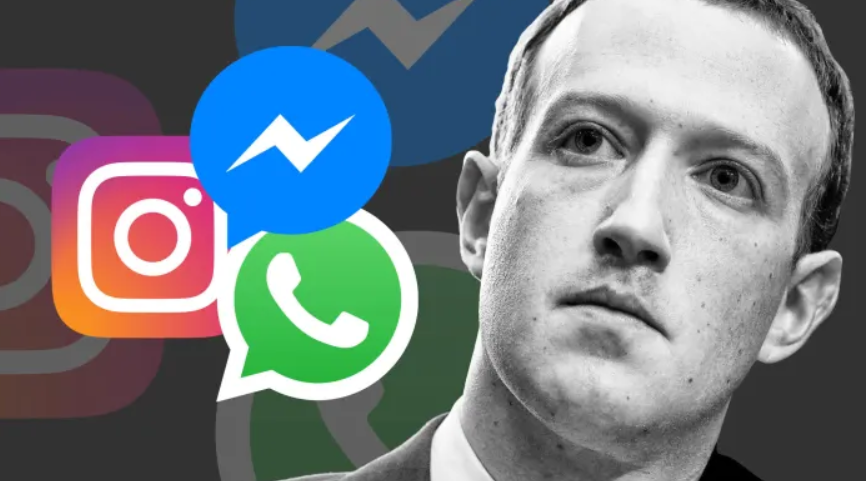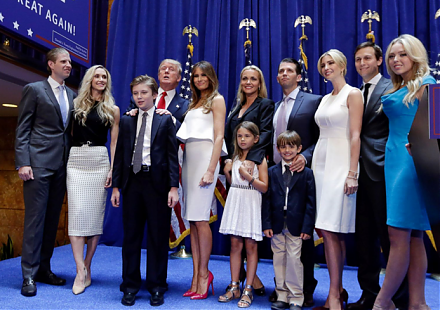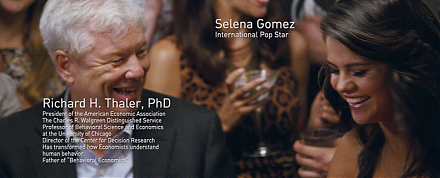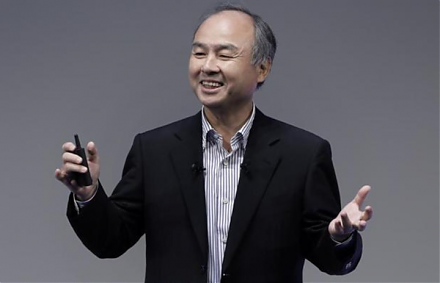

2020-02-12 09:31:00 Wed ET
technology facebook platform patent distinctive capabilities intellectual property trademark copyright flywheel competitive advantages sheryl sandberg reinvention disruptive innovation blue ocean niche network effects scale economies information cascades mark zuckerberg instagram whatsapp oculus social media

Mark Zuckerberg develops Facebook as a social network platform to help empower global connections among family and friends.
David Kirkpatrick (2011)
The Facebook effect: the inside story of the company that connects the world
In this business book, Kirkpatrick delves into the life of founder-entrepreneur Mark Zuckerberg and then discusses how he designs Facebook that connects the world via the Internet. Facebook has become a utility-driven social network platform that enables global connections. People can share substantive amounts of information on Facebook via the electronic enhancement of real-life relationships. As a social network platform, Facebook can lead to positive or negative customer experiences via information cascades, network effects, and scale economies. Facebook affects the online lives of more than 2.2 billion users worldwide. As the executive founder, Mark Zuckerberg needs to uphold the company's vision and integrity through many years of exponential growth.
During his sophomore year at Harvard University in 2003, Mark Zuckerberg found the ingenious idea of fresh and novel Internet social media services in collaboration with his roommates Dustin Moskovitz and Chris Hughes. Facemash was an online program that invited Harvard students to compare different faces of the same sex to declare which one was hot or not. Due to discriminatory concerns, the Harvard disciplinary board deterred Zuckerberg and then put him on probation for the stunt. However, the school restriction was insufficient to stop him from building the next phenomenal website Facebook.
In February 2004, Zuckerberg recruited Eduardo Saverin to help out with business matters, and then Facebook went live. Zuckerberg designed Facebook as a social directory of college students that allowed them to look for people, classmates, and friends of friends with better social network visualization. Each user created a core profile page with real information and then invited others to join the social network. User experiences would improve as friends invited their friends to join Facebook, and as a result, the whole platform value of Facebook would increase exponentially with social network size.
The social network service expanded to other Ivy League schools, and Zuckerberg invited Moskovitz and Hughes to help run Facebook. With their dense and vigorous social networks, college campuses were a key innovative laboratory for Facebook. Meanwhile, Saverin began to help Facebook generate revenue from online ads. In order to enhance Facebook user experiences, Zuckerberg retained tight control of standard ad banners. The young executive founder chose to ignore high advertiser demands for any privilege or special treatment due to his prescient concerns about user interface design.
A former Napster co-founder, networker, and salesman Sean Parker brought fresh professionalism to the company. Parker and Zuckerberg skillfully paced Facebook user growth with the new addition of servers as Facebook became a real business phenomenon. By the end of Summer 2004, Facebook had attracted 200,000 users, and Zuckerberg and Moskovitz decided not to return to Harvard.
In Fall 2004, an opportune outside investment came from PayPal co-founder and serial entrepreneur Peter Thiel who agreed to lend Facebook $500,000. Later this investment would turn into 10% equity stakes in the company. Thiel further joined the board of directors for Facebook. Moreover, Parker arranged a $300,000 3-year line of credit for Zuckerberg and his team to handle the exponential user growth at Facebook. In late-November 2004, Facebook registered more than 1 million users. At this stage, Facebook began to attract the money and attention of Silicon Valley bigwigs, angel investors, and venture capitalists.
In May 2005, Peter Thiel and the venture capital firm Accel Partners invested about $12 million in Facebook with an implicit equity valuation of more than $98 million. Parker created an additional empty board seat to protect Zuckerberg's ownership and control of Facebook. With 2 board seats, no one would be able to force him to sell the company.
Facebook refreshed the target audience ads with better mobile website redesign. In Fall 2005, Facebook social network membership hit 5 million users. Facebook added a new feature to allow users to upload-and-share photos, photo tags, photo comments, and online albums. Whenever users got photo tags, these users would receive automatic email notifications.
Zuckerberg regarded the high demand for social interactions as a proof of concept: people wanted to know what was new, what had changed, and what had happened that they did not already know. With better privacy control mechanisms, Facebook introduced the newsfeed for all users to see the status updates, photos, video clips, and posts etc of their family and friends within the same social network ecosystem.
In September 2006, Facebook launched open registration for all prospective users. The college and high school users did not appear to be complaining about the new older demographic group. Zuckerberg opened up Facebook for new mobile apps. New applications would generate more website visits, more page views, and more ad sales for Facebook. At the outset, Zuckerberg wanted to introduce more socially conscious types of mobile software apps, but numerous users focused on playing games with one another via Facebook.
Zuckerberg emphasized the essential need for more active users in the Facebook social network platform. In an aggressive series of major deals, Facebook acquired Instagram, WhatsApp, and Oculus to further increase the global number of active users. Zuckerberg viewed Facebook as a primary example of a reciprocal society where someone would share information with another person and then that person would give back out of obligation or generosity. The Internet empowered Facebook to operate this online social community at a large scale. Zuckerberg and his team regarded this core social mission as more important than monetization.
In March 2008, Sheryl Sandberg joined Facebook as the Chief Operations Officer (COO) with her prior experiences of digital ad sales at Google and public affairs as the Chief of Staff of the U.S. Treasury Secretary Lawrence Summers. Before she joined Facebook, the company primarily focused on building a cool social network platform; Zuckerberg and his team assumed sales and profits to follow as a result. Sandberg leveraged her prior experiences of running Google keyword ads to boost the average revenue per user (ARPU) in the Facebook social network ecosystem. In 2010, Facebook became profitable as the newsfeed began rolling out digital ads that targeted active user interests, preferences, and behaviors. Sandberg oversaw core Facebook business operations from business development and personnel to public policy, compliance, and communication. In 2012, Sandberg became the first female member of the board of directors at Facebook.
Statista suggests that Facebook achieves an impressive ARPU of $20 per user in 2018-2019. Out of this $20 ARPU, about $8 can be viewed as the net cash profit. This superior financial performance empowers Facebook to leverage the network platform as a gigantic ecosystem for mobile app design, social media, and even e-commerce etc. The purpose-driven Zuckerberg ethos serves as the root cause of long-term fundamental profitability with better ad monetization over time.
In the next decade, Facebook faces challenges across the competitive landscape. Zuckerberg, Sandberg, and their team need to attend to regulatory antitrust probes into their recent acquisitions of Instagram, WhatsApp, and Oculus AR. Facebook must re-assess consumer privacy, user information exchange, data protection and transmission, regulatory compliance, as well as fierce competition in social media, public communication, e-commerce, Internet software, and mobile-first app design. On balance, the law of inadvertent consequences counsels caution.
This analytic essay cannot constitute any form of financial advice, analyst opinion, recommendation, or endorsement. We refrain from engaging in financial advisory services, and we seek to offer our analytic insights into the latest economic trends, stock market topics, investment memes, personal finance tools, and other self-help inspirations. Our proprietary alpha investment algorithmic system helps enrich our AYA fintech network platform as a new social community for stock market investors: https://ayafintech.network.
We share and circulate these informative posts and essays with hyperlinks through our blogs, podcasts, emails, social media channels, and patent specifications. Our goal is to help promote better financial literacy, inclusion, and freedom of the global general public. While we make a conscious effort to optimize our global reach, this optimization retains our current focus on the American stock market.
This free ebook, AYA Analytica, shares new economic insights, investment memes, and stock portfolio strategies through both blog posts and patent specifications on our AYA fintech network platform. AYA fintech network platform is every investor's social toolkit for profitable investment management. We can help empower stock market investors through technology, education, and social integration.
We hope you enjoy the substantive content of this essay! AYA!
Andy Yeh
Chief Financial Architect (CFA) and Financial Risk Manager (FRM)
Brass Ring International Density Enterprise (BRIDE) © 2013-2023
Do you find it difficult to beat the long-term average 11% stock market return?
It took us 20+ years to design a new profitable algorithmic asset investment model and its attendant proprietary software technology with fintech patent protection in 2+ years. AYA fintech network platform serves as everyone's first aid for his or her personal stock investment portfolio. Our proprietary software technology allows each investor to leverage fintech intelligence and information without exorbitant time commitment. Our dynamic conditional alpha analysis boosts the typical win rate from 70% to 90%+.
Our new alpha model empowers members to be a wiser stock market investor with profitable alpha signals! The proprietary quantitative analysis applies the collective wisdom of Warren Buffett, George Soros, Carl Icahn, Mark Cuban, Tony Robbins, and Nobel Laureates in finance such as Robert Engle, Eugene Fama, Lars Hansen, Robert Lucas, Robert Merton, Edward Prescott, Thomas Sargent, William Sharpe, Robert Shiller, and Christopher Sims.
Follow AYA Analytica financial health memo (FHM) podcast channel on YouTube: https://www.youtube.com/channel/UCvntmnacYyCmVyQ-c_qjyyQ
Follow our Brass Ring Facebook to learn more about the latest financial news and fantastic stock investment ideas: http://www.facebook.com/brassring2013.
Free signup for stock signals: https://ayafintech.network
Mission on profitable signals: https://ayafintech.network/mission.php
Model technical descriptions: https://ayafintech.network/model.php
Blog on stock alpha signals: https://ayafintech.network/blog.php
Freemium base pricing plans: https://ayafintech.network/freemium.php
Signup for periodic updates: https://ayafintech.network/signup.php
Login for freemium benefits: https://ayafintech.network/login.php
If any of our AYA Analytica financial health memos (FHM), blog posts, ebooks, newsletters, and notifications etc, or any other form of online content curation, involves potential copyright concerns, please feel free to contact us at service@ayafintech.network so that we can remove relevant content in response to any such request within a reasonable time frame.
2017-08-07 09:39:00 Monday ET

Global financial markets suffer as President Trump promises *fire and fury* in response to the recent report that North Korea has successfully miniaturized
2022-04-05 17:39:00 Tuesday ET

Corporate diversification theory and evidence A recent strand of corporate diversification literature spans at least three generations. The first generat
2022-04-25 10:34:00 Monday ET

Corporate ownership governance theory and practice The genesis of modern corporate governance and ownership studies traces back to the seminal work
2017-03-09 05:32:00 Thursday ET

From 1927 to 2017, the U.S. stock market has delivered a hefty average return of about 11% per annum. The U.S. average stock market return is high in stark
2022-10-25 11:31:00 Tuesday ET

Corporate investment insights from mergers and acquisitions Relative market misvaluation between the bidder and target firms drives most waves of mergers
2018-12-21 11:39:00 Friday ET

The Internet and telecom conglomerate SoftBank Group raises $23 billion in the biggest IPO in Japan. Going public is part of the major corporate move away f